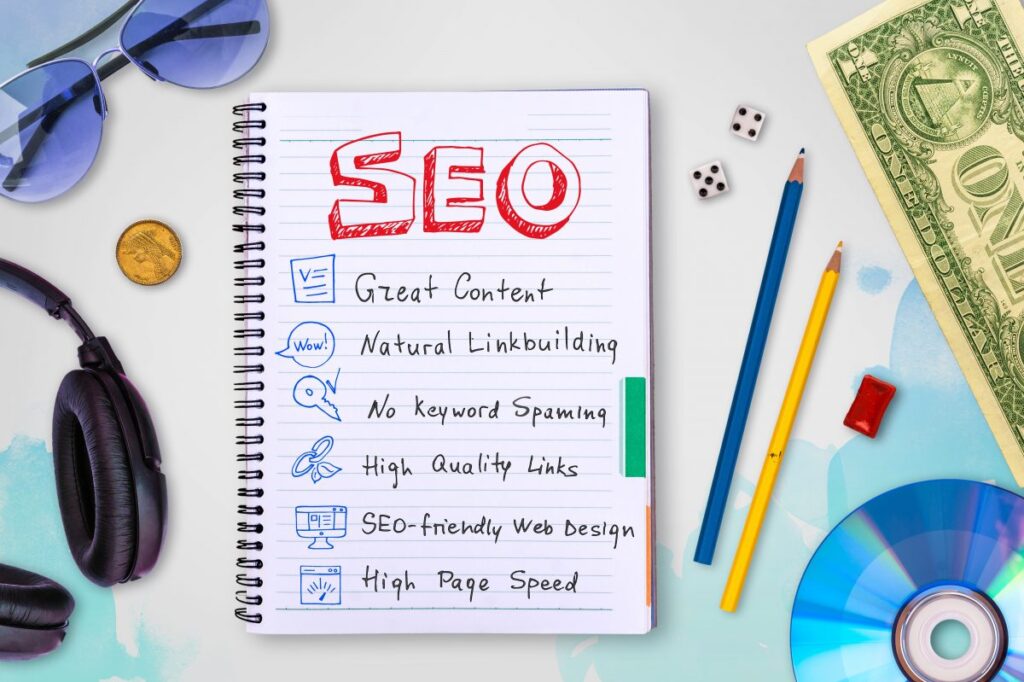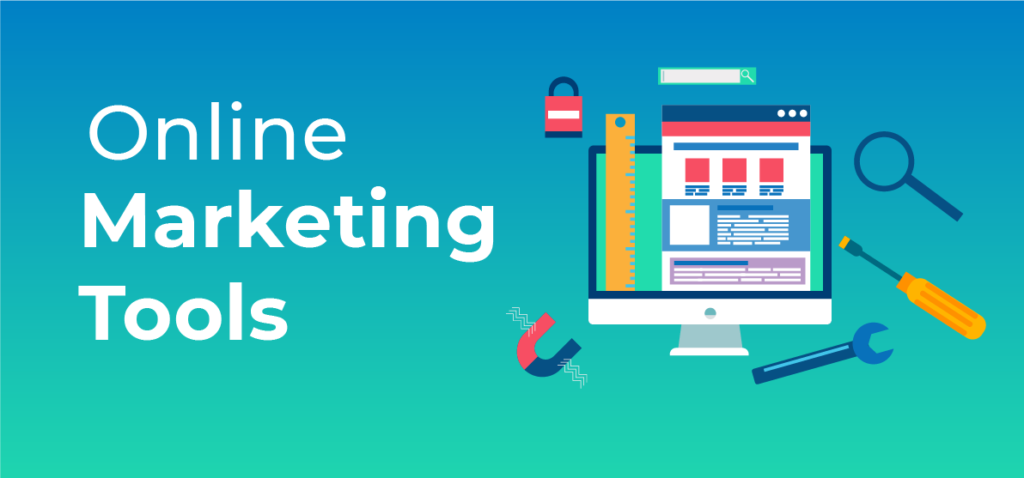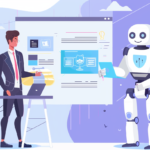The digital age has ushered in a plethora of technological advancements, but few have the potential to reshape industries as profoundly as Artificial Intelligence (AI). As marketing professionals, it’s imperative to understand the trajectory of AI and its implications for our strategies, campaigns, and overall business objectives.
The Genesis of AI: A Brief Retrospective
The journey of AI has been one of both immense promise and humbling setbacks. From the early dreams of mimicking human thought to the practical applications shaping our world today, AI’s evolution has entered what some may view as a “golden age.” What once was the domain of research labs and math-heavy problem solving is now fast becoming table stakes for companies and teams to keep up with the pace of competition.
Let’s take a quick look back at how we got here:
Alan Turing publishes his seminal paper "On Computable Numbers, with an Application to the Entscheidungsproblem," introducing the Turing machine, a theoretical model of computation that laid the foundation for modern computers and AI. This concept proved instrumental in understanding the limits and possibilities of computational models.![]()
The year 1956 marks the official birth of Artificial Intelligence (AI). At the Dartmouth Workshop, John McCarthy, Marvin Minsky, and other pioneers coined the term and ignited a flame of possibility. The early vision revolved around creating machines capable of "thinking" like humans, tackling problems with reason and logic.![]()
The following decades saw promising steps. Programs like ELIZA mimicked human conversation, while Arthur Samuel's checkers-playing program surprised all by learning from its mistakes. However, funding droughts and limitations in processing power hampered progress.![]()
Enthusiasm waned as early promises proved hard to achieve. Limited computing power and a lack of theoretical breakthroughs led to the "AI Winter," a period of reduced funding and research.
The new millennium ushered in a resurgence. Advanced algorithms like Support Vector Machines and deep learning techniques like Backpropagation breathed new life into AI. Applications like spam filtering and image recognition emerged, showcasing practical applications.![]()
The rise of big data and powerful processing units like GPUs fueled an AI explosion. Deep learning algorithms like convolutional neural networks revolutionized image recognition, natural language processing, and more. Applications diversified rapidly, from self-driving cars to AI-powered assistants like Siri and Alexa.![]()
Democratization and Specialization: AI is no longer confined to research labs. Cloud computing and readily available tools like TensorFlow democratize AI, making it accessible to businesses and individuals. Simultaneously, specialization deepens as different AI paradigms tackle specific tasks with remarkable accuracy.
Beyond Moore’s Law: The Exponential Rise of AI
Historically, the growth of computing power followed Moore’s Law, which posited that the number of transistors on a microchip would double approximately every two years. However, recent data suggests that AI’s computational growth has shattered this paradigm.
Since 2012, AI’s computing power has been doubling at a staggering rate of every 3.4 months, a pace that makes Moore’s Law seem almost pedestrian.
The Semiconductor Revolution: NVIDIA’s A100 AI Chip
In the semiconductor arena, NVIDIA’s recent unveiling of its A100 AI chip is a testament to the rapid advancements in AI hardware. Boasting 54 billion transistors, this chip can execute 5 quadrillion operations per second, a 20-fold increase from its predecessor. For tech marketers, promoting such groundbreaking hardware becomes pivotal, emphasizing its cost-efficiency and power conservation.
AI’s Pervasive Impact and Opportunities for Marketers
The marketing landscape is witnessing a tidal wave of Artificial Intelligence (AI) advancements, reshaping strategies, tools, and tactics at an unprecedented pace. While the specific details of individual models remain fluid, the implications of AI proliferation for marketers are clear: a transformative opportunity riddled with complex challenges.
- Hyper-personalization: AI unlocks a granular understanding of individual preferences and behaviors. Imagine dynamic ads seamlessly adapting to real-time emotions, product recommendations tailored to specific needs, and content crafted to individual interests. This level of personalization promises to captivate customers and boost engagement.
- Unleashing Creativity: AI-powered tools aren’t just data analysis machines; they’re becoming creative partners. Imagine generating different content formats instantly, experimenting with narrative styles, and optimizing copy for specific audiences. This opens doors to dynamic, data-driven storytelling that resonates deeply with diverse customer segments.
- Efficiency Amplified: Automation is a hallmark of AI, and marketing is no exception. Imagine AI handling repetitive tasks like data analysis, report generation, and campaign optimization. This frees up marketers to focus on strategic thinking, innovative ideation, and building impactful human-to-human connections.
A Goldmine for Marketers
According to the International Data Corporation, companies are projected to spend approximately $50 billion on AI development in 2020. This figure is anticipated to soar to $110.7 billion by 2024. Such massive capital influx signifies the growing trust and reliance on AI technologies.
For marketers, especially those in the B2B domain, this presents a golden opportunity. Promoting AI solutions, especially to industries still in the early stages of AI adoption, can yield significant dividends.
The marketing industry, like many others, is undergoing a transformation due to AI. Here’s what we can expect:
- Human-AI Collaboration: The future lies in a symbiotic relationship between marketers and AI. Instead of fearing automation, the focus should be on leveraging AI’s strengths while building upon uniquely human qualities like creativity and intuition.
- Explainable AI: Technologies that shed light on AI decision-making processes are crucial for building trust and ethical marketing practices. This transparency is essential for both internal accountability and external communication with customers.
- AI-powered Insights: Advanced AI tools can provide deeper customer understanding, enabling marketers to create highly targeted campaigns and measure campaign effectiveness more precisely. AI can analyze which ads are performing best and allocate resources accordingly, ensuring maximum ROI.
- Upskilling the Workforce: As AI tools evolve, so must the skillsets of marketers. Learning to work with AI, interpret its outputs, and use them for strategic decision-making will be vital for future success.
Quick Read: 8 Ways Marketers are Harnessing Generative AI in 2023!
The Road Ahead: Embracing the AI Renaissance
As we navigate the AI-driven landscape, it’s crucial for marketers to stay abreast of these advancements.
The next three decades promise technological marvels that might render our current landscape unrecognizable. By aligning our marketing strategies with AI’s trajectory, we can ensure not just relevance but also a competitive edge in a rapidly evolving marketplace.
In conclusion, AI isn’t just a technological marvel; it’s a beacon guiding marketers towards uncharted territories brimming with opportunities. Embracing it isn’t an option; it’s a necessity.







